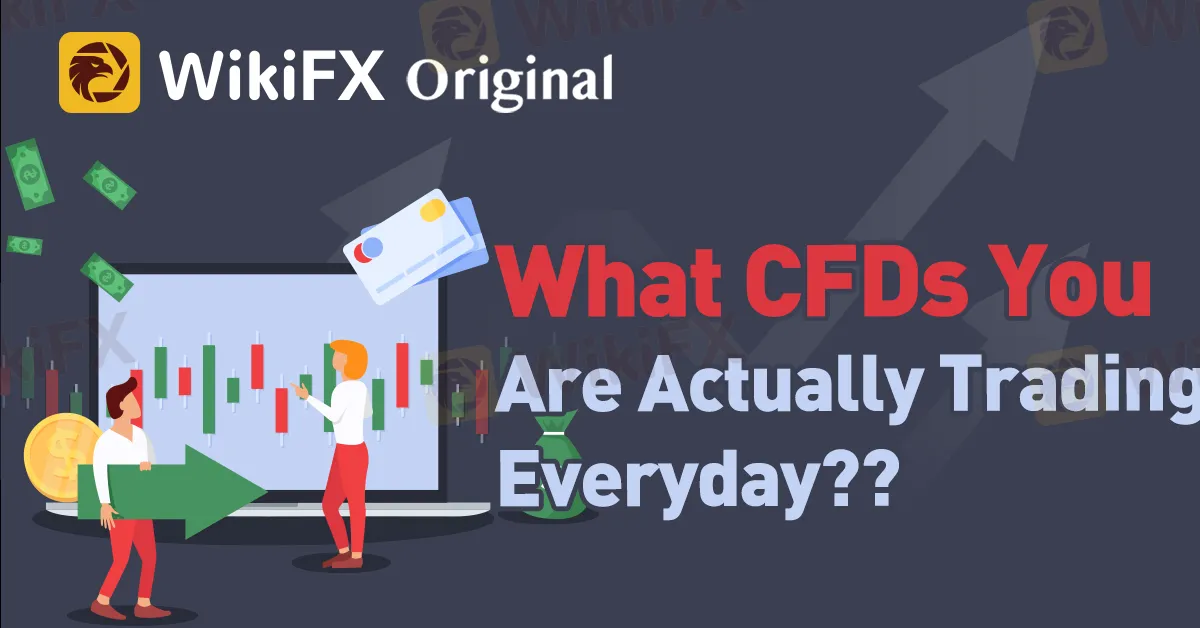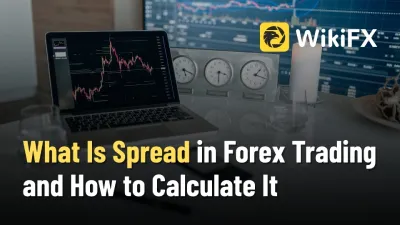What Is Spread in Forex Trading and How to Calculate It
Spread Meaning in Forex Guide: Forex spread defines the bid-ask price differential, representing the cost of entering a trade instantly.
简体中文
繁體中文
English
Pусский
日本語
ภาษาไทย
Tiếng Việt
Bahasa Indonesia
Español
हिन्दी
Filippiiniläinen
Français
Deutsch
Português
Türkçe
한국어
العربية
Abstract:This article provides a comprehensive overview of the different types of Contracts for Difference (CFDs), including stocks, commodities, currencies, and indices, empowering traders and investors with the knowledge to make informed decisions in the world of CFD trading.

Contracts for Difference (CFDs) have gained immense popularity among traders and investors in today's flourishing financial markets. CFDs allow individuals to speculate on the value fluctuations of diverse underlying assets without physically owning them. This article aims to provide readers with a comprehensive understanding of the various types of CFDs, including stocks, commodities, currencies, and indices. By researching the unique characteristics, advantages, and considerations of each type, readers can enter the realm of CFD trading with enhanced knowledge.

Equity CFDs enable traders to capitalize on price changes in specific stocks without owning the actual shares. These CFDs offer profit potential in both rising and falling markets, granting investors access to a wide range of international businesses, spanning from large corporations to small-cap stocks across various industries. The diverse nature of equity CFDs presents numerous opportunities for portfolio diversification.
One of the key advantages of equity CFDs is the leverage they provide. Traders can increase the size of their positions with a relatively low initial investment. However, it is crucial to bear in mind that leverage can also amplify losses. Moreover, if the underlying stock pays dividends, equity CFDs may offer traders an additional source of income.

Commodity CFDs enable trading on the price fluctuations of physical commodities, such as precious metals, energy resources, agricultural goods, and more, without the need to physically own or store these commodities. The commodity market is influenced by various factors, including weather patterns, supply and demand dynamics, and geopolitical events. Commodity CFDs empower traders to profit from these price swings, while the leverage offered by these CFDs allows for greater exposure to these markets.

Forex (foreign exchange) CFDs provide traders with the opportunity to speculate on changes in exchange rates between two currencies. The forex market is the largest and most liquid market globally, offering substantial trade volumes and high market liquidity. With forex CFDs, traders can profit from both rising and falling markets by taking long or short positions on currency pairs. Leverage in forex CFDs enables traders to control larger positions with a smaller initial investment. However, it is important to acknowledge that leverage also entails increased risk and potential losses.

Indices CFDs enable traders to make predictions about price fluctuations in a portfolio of stocks representing a particular market or industry, without owning the underlying companies. Traders can gain exposure to various indices, including well-known ones like the S&P 500, FTSE 100, and Nikkei 225. Trading indices CFDs offers investors a practical means of diversifying their portfolios across multiple businesses within a specific market or industry. Indices serve as valuable indicators for traders, providing insights into the overall state and performance of the underlying market or industry. Leveraged indices CFDs allow traders to access a broader market exposure with a smaller initial investment.
To engage in CFD trading successfully, it is crucial to have a comprehensive understanding of the different types of CFDs, such as stocks, commodities, currencies, and indices. Traders should be aware of their distinctive characteristics, advantages, and considerations. CFDs offer a flexible and accessible option to participate in a variety of financial markets, whether one seeks the diversity of equities, the potential profits from commodity price fluctuations, the dynamic nature of the forex market, or the broad exposure provided by indices.
When trading CFDs, it is essential to conduct thorough research and analysis, manage risk prudently, and stay updated on market developments. Additionally, traders should consider collaborating with reputable brokers who offer transparent pricing, reliable platforms, and effective risk management tools.
In conclusion, familiarizing oneself with the various types of CFDs, such as stocks, commodities, currencies, and indices, opens up a world of opportunities for traders and investors. Each type possesses distinct qualities and profit potential. By comprehending their specific features, utilizing the advantages they offer, and considering the associated risks, individuals can make informed decisions and increase their chances of success in the dynamic world of CFD trading.

Disclaimer:
The views in this article only represent the author's personal views, and do not constitute investment advice on this platform. This platform does not guarantee the accuracy, completeness and timeliness of the information in the article, and will not be liable for any loss caused by the use of or reliance on the information in the article.

Spread Meaning in Forex Guide: Forex spread defines the bid-ask price differential, representing the cost of entering a trade instantly.

Dear Global Users, Thank you for journeying alongside WikiFX. Every query you make, every review you share, and every piece of feedback you provide serves as the most vital driving force behind our continuous efforts to promote transparency and security in the trading industry.

As the new year begins, WikiFX extends our sincere gratitude to traders worldwide, our industry partners, and all users who have consistently supported us.

Dear Forex Traders, When choosing a forex broker, have you ever faced these dilemmas? Dozens of broker advertisements, but unsure which one is truly reliable? Online reviews are either promotional content or outdated/incomplete? Want to learn about real users’ deposit/withdrawal experiences but can’t find firsthand accounts? Now, your experience can help thousands of traders and earn you generous rewards! The campaign is long-term and you can join anytime.
